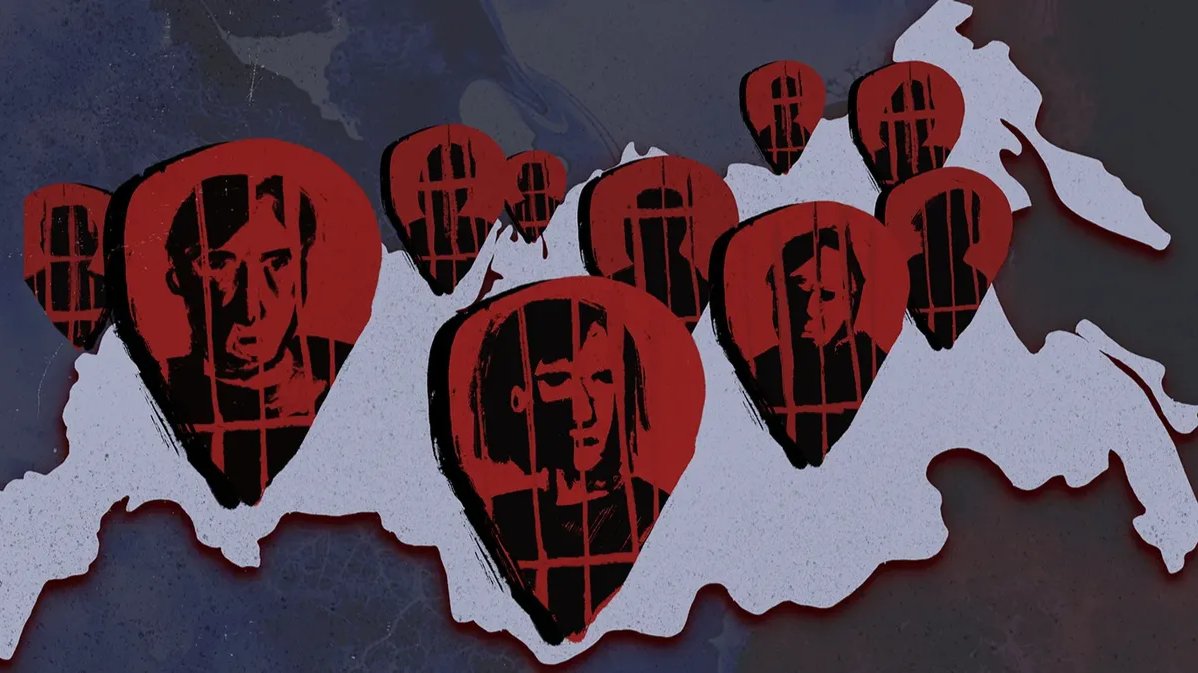Novaya Europe’s interactive map shows where Russian political prisoners are serving their time and includes addresses if you wish to write them a letter.
Alexey Navalny’s death in the Arctic prison where he was serving a 30-year prison sentence last month understandably increased fears for the well-being of the dozens of other political prisoners whose health has deteriorated during their incarceration in Russia’s harsh prisons and penal colonies.
One better-known example is Sasha Skochilenko, the 33-year-old sentenced to seven years in prison for swapping supermarket labels with anti-war messages. Skochilenko suffers from multiple mental and physical conditions and her health has seriously deteriorated since she was first detained. Another is teenager Yegor Balazeykin, who suffers from incurable autoimmune hepatitis and was sentenced to six years in prison last autumn after he had attempted to set fire to two military enlistment offices. He has since been diagnosed with internal organ induration, in addition to an inflamed and eroded small intestine.
Despite their serious health conditions, neither Skochilenko nor Balazeykin has been allowed to serve their sentences under house arrest, which would permit them to receive medical treatment. On top of that, both must now endure the brutality of Russia’s penal colonies for years to come.
Russian prisons are even tougher for older inmates, even if they’re not dealing with serious health conditions. Igor Baryshnikov, a 64-year-old pensioner diagnosed with prostate cancer, and Zarema Musaeva, the 54-year-old mother of Chechen human rights activist Abubakar Yangulbaev who suffers from type 2 diabetes, are serving a seven and a half and a five and a half year sentences respectively, while Memorial co-chairman Oleg Orlov, at the age of 70, was recently sentenced to two and a half years in prison last month for “discrediting the Russian army”.
Novaya Europe has compiled the profiles of political prisoners whose families and lawyers say they need external medical attention because of their worsening physical and mental health.
Writing to these prisoners can make a world of difference. Each of our profiles contains an address you can send your letters to express support and sympathy. You can also subscribe to “Zekletter”, Novaya Europe’s weekly newsletter in Russian, which skips the prison censors so you can share it with inmates.
Political prisoners with serious health risks
The map includes the annexed Crimea and city of Sevastopol, as well as the occupied territories of UkraineSource: International Memorial
Join us in rebuilding Novaya Gazeta Europe
The Russian government has banned independent media. We were forced to leave our country in order to keep doing our job, telling our readers about what is going on Russia, Ukraine and Europe.
We will continue fighting against warfare and dictatorship. We believe that freedom of speech is the most efficient antidote against tyranny. Support us financially to help us fight for peace and freedom.
By clicking the Support button, you agree to the processing of your personal data.
To cancel a regular donation, please write to [email protected]

